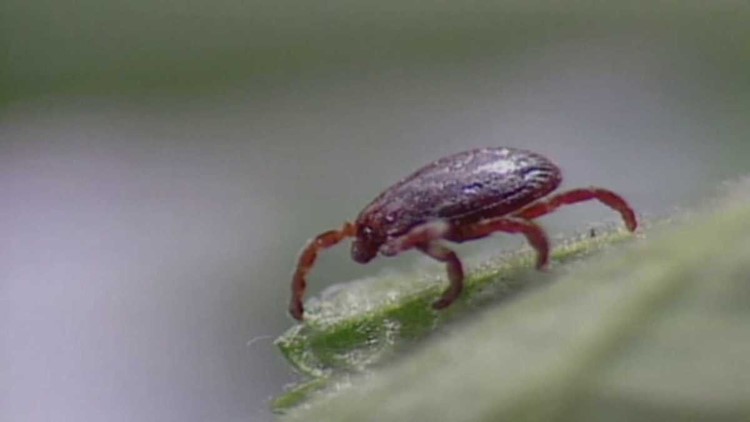STILLWATER, Oklah. (KFOR) — Health officials say an Oklahoma resident has been diagnosed with a rare tick borne disease.
The Centers for Disease Control and Prevention say that a Payne County resident tested positive for Bourbon virus.
This case is the first detected in Oklahoma and only the second case in the United States.
Officials with the Oklahoma State Department of Health say that since the disease is so new, more research is needed to understand the severity of Bourbon virus.
“We really don’t know how significant it will be because with only two cases known in the United States, there are a lot of unanswered questions,” said Kristie Bradley, Oklahoma epidemiologist.
Symptoms include fever, severe muscle, joint pain, fatigue, disorientation, diarrhea and a rash.
Tests ruled out all the usual suspected viruses and the CDC eventually confirmed it was Bourbon virus.
At this time, there is no treatment for Bourbon virus infections since it doesn’t respond the same way other viruses do to antibiotics.
Doctors say the Oklahoma patient was given plenty of fluids and had to wait for the virus to run its course.
“Among the two cases of Bourbon virus, the Kansas case did die and our Oklahoma patient recovered fully,” said Kristie Bradford, Oklahoma epidemiologist.
Tick borne diseases, like Rocky Mountain spotted fever, ehrlichiosis and tularemia, are relatively common in Oklahoma.
Symptoms of those illnesses include fever, chills, headache, vomiting, rash or painful swelling of lymph nodes near the tick bite.
Most of the common tick borne diseases can be treated with antibiotics.
Experts say it is important to seek medical attention if signs of illness are noticed within 14 days of a tick bite or being in an area where ticks are prevalent.
The Oklahoma State Department of Health is encouraging anyone who is hiking, camping or participating in outdoor activities to use the following tips to prevent tick bites:
•Wear light-colored clothing to make ticks easier to see and remove before attachment.
•Wear long-sleeved shirts and long pants tucked into socks to deprive ticks of attachment sites.
•Wear closed-toe shoes, not sandals.
•Hikers and cyclists should stay in the center of trails to avoid grass and brush.
•Check for ticks at least once per day, particularly along waistbands, hairline and back of neck, in the armpits and groin area. Remove attached ticks as soon as possible using tweezers or fingers covered with a tissue.
•Use an insect repellent containing DEET on skin and clothing.
•Check with a veterinarian about tick control for pets.



